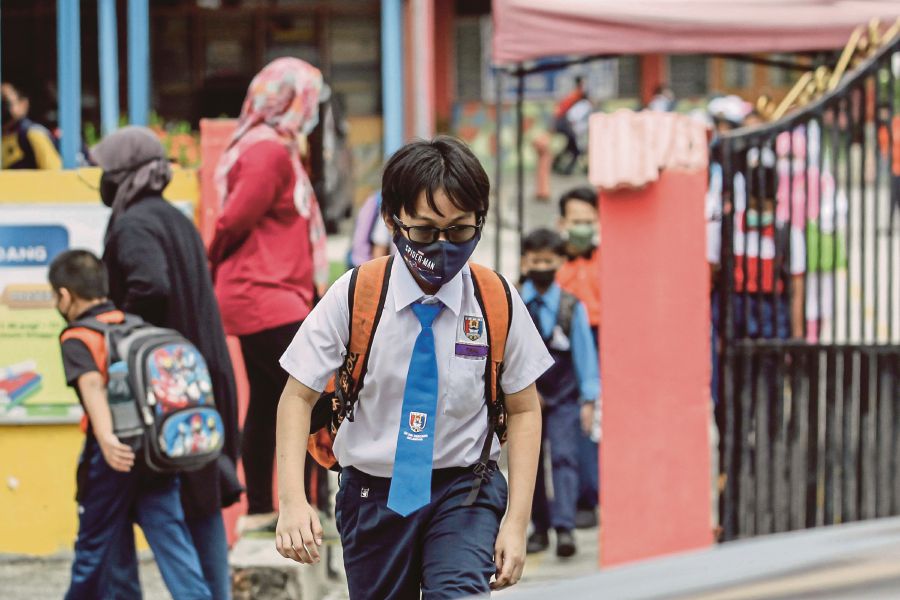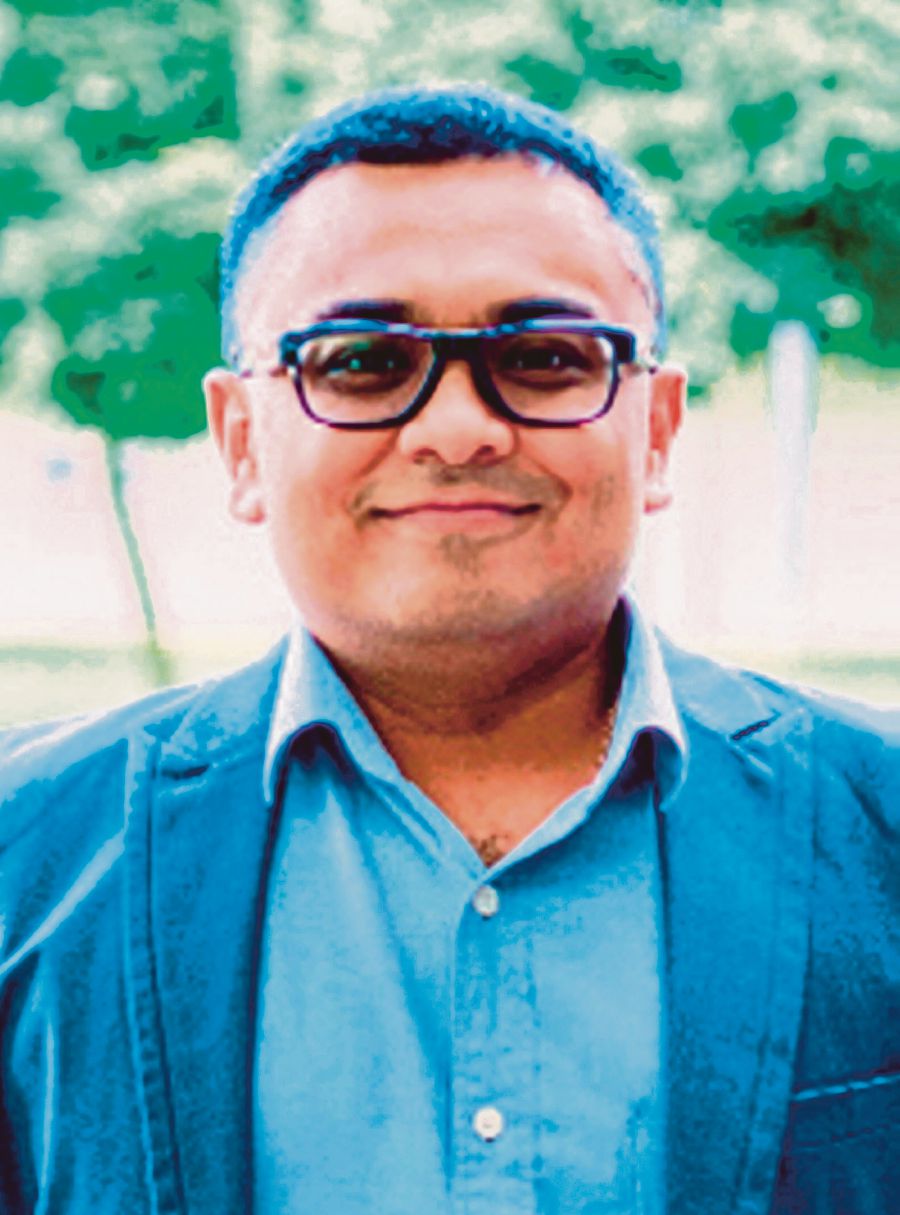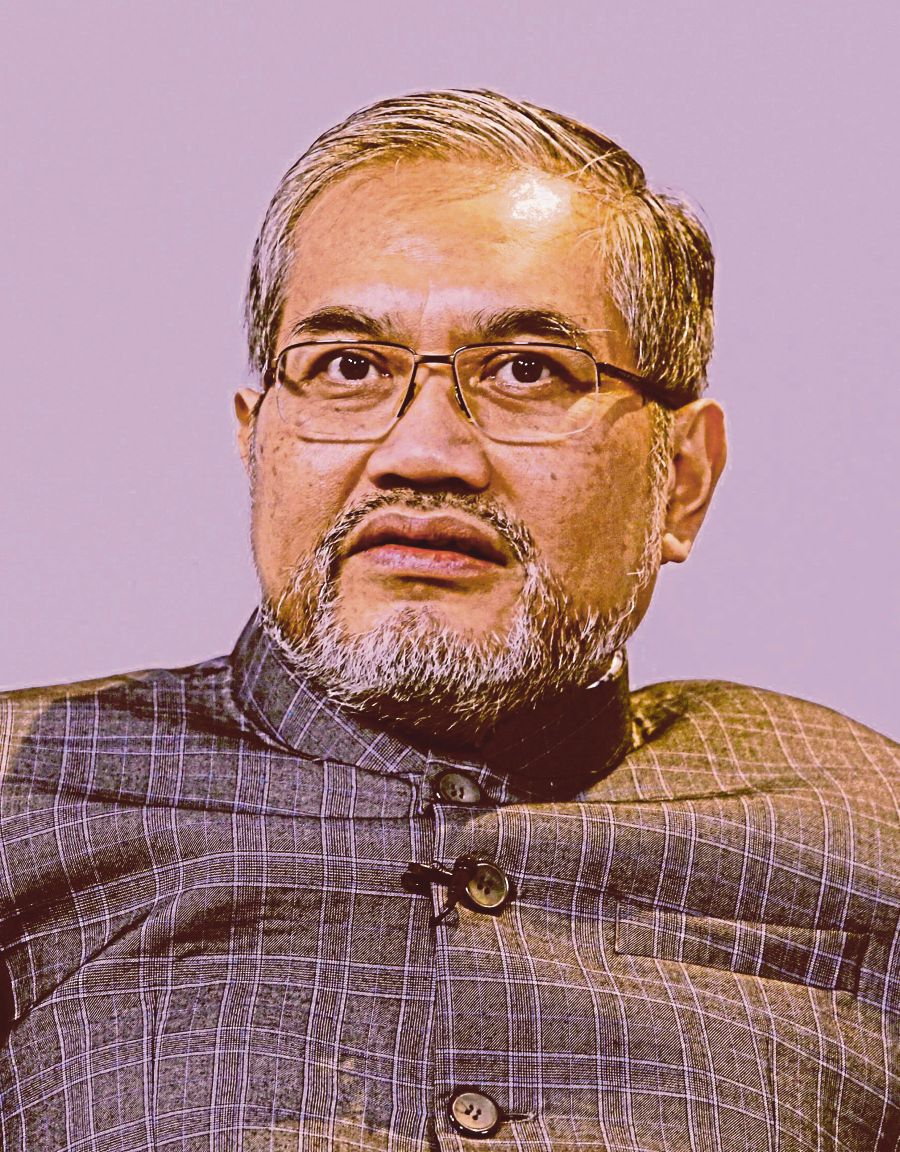
Experts said besides immunising children, the government should put in place added protective measures and ensure schools comply with the standard operating procedures (SOP) to reduce the spread of Covid-19.
They said schools should encourage children and staff to double mask, or use KN95 or N95 masks, which provided more protection against Covid-19; observe 1m to 2m of physical distancing; and maintain good ventilation in classrooms.
Dr Vinod Balasubramaniam, a molecular virologist at the Jeffrey Cheah School of Medicine and Health Sciences in Monash University Malaysia, said despite the fact that 90 per cent of children aged 12 to 17 were vaccinated, a steady surge in cases was expected with the Omicron wave, with education clusters
contributing a significant number.

He said the Omicron variant (both BA.1 and BA.2 sub-variants) was capable of evading immune responses mounted by vaccines at a much better rate than the highly pathogenic Delta strain, hence the chances of reinfection in the vaccinated was higher than the previous waves.
"While vaccines offer protection from disease severity and mortality, it alone will not be enough to stop the chain of transmission.
"Public health measures such as masking (with Omicron, at least KN95 or N95), proper hand hygiene, and physical distancing at all times are of utmost importance in combating the Omicron wave," he told the New Straits Times.
According to the ministry's CovidNow portal, the education sector recorded the highest number of active Covid-19 clusters in Malaysia, with 187 of the 318 active clusters.
Dr Vinod further said recent studies indicated that children infected with Omicron had a 20 per cent higher risk of hospitalisation compared with Delta.
In the United States, for example, paediatric Covid-19 admissions rose by 48 per cent in the final week of December 2021 with most of these children unvaccinated or under-vaccinated.
He said young patients were at risk of developing multisystem inflammatory syndrome, a serious complication characterised by inflammation in multiple organs such as the heart, lungs and kidneys.
"They are also at risk of developing long Covid, or sustained symptoms for up to 12 weeks or more which cannot be explained by any alternative diagnosis.
"The virus itself getting into and damaging our cells might explain some symptoms, like brain fog and a loss of smell and taste, and damage to blood vessels, in particular, could lead to heart, lung and brain problems."
Dr Vinod said it was, therefore, imperative that the Education Ministry and schools implemented added measures, such as 1m to 2m distancing and using face masks at all times, especially indoors, including cars and buses.
He said keeping students in groups, or cohorts, and limiting contact among cohorts might reduce transmission.
Dr Vinod said the management of ventilation during transport to school (buses or vans) and in classrooms was crucial, noting that most classrooms were enclosed, which increased the risk of aerosol transmission.
Protective ventilation practices and interventions could reduce the airborne concentrations and reduce the viral dose to occupants, he said.
He said spaces where there was potential for long-duration exposure over several hours within the same group, should have regular breaks, ideally with purge ventilation/airing of the room.
Dr Vinod proposed the use of carbon dioxide (CO2) monitoring systems in each classroom to ensure good air quality.
"As virus-carrying aerosols are exhaled, so too is CO2. And when ventilation is poor, CO2 accumulates along with the virus and with this, SARS-CoV-2 infection risk rises, especially when there is no air change.
"Countries like Taiwan, Norway and Portugal have laws that limit indoor CO2 to 1,000 p.p.m. (parts per million).
"Setting CO2 limits would help to ensure that ventilation is adequate to reduce infection risk. If the CO2 exceeds recommended levels, mitigation for proper ventilation can be done immediately to reduce the risk of aerosol transmission."
He said it was not feasible in the long run to continue online learning as the previous lockdowns had resulted in extreme psychological stress on schoolchildren.
Public health expert and epidemiologist Datuk Dr Zainal Ariffin Omar said it was impossible to get zero cases in schools and zero Covid complications among schoolchildren, and advised parents and children to take extra precautions in addition to the SOP.

"Get children (above 5 years) fully immunised (including booster jabs, if necessary), preferably use N95 or K95 masks at all times, avoid crowded areas, frequently hand-wash, do self-testing at home at regular intervals."
Dr Zainal Ariffin also called on the Health Ministry to make public details of the severity of cases, vaccination type and status, and the vaccination coverage of school clusters by age group.
Epidemiologist Professor Datuk Dr Awang Bulgiba Awang Mahmud of Universiti Malaya said vaccination would reduce the risk of severe disease among children.

However, he said the Omicron variant was more infectious and it was unlikely that transmission protection could be optimal with vaccination alone.
He said non-pharmaceutical interventions, like mask-wearing, physical distancing, and ventilation, need to be combined with vaccination to protect children. - NST


No comments:
Post a Comment
Note: Only a member of this blog may post a comment.